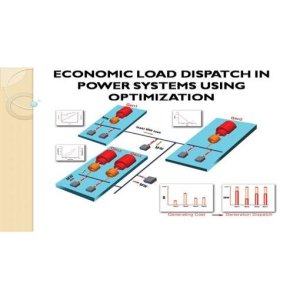Improved network survivability and energy balancing in wireless sensor networks through M-TRAC and fuzzy cmin clustering algorithms
Problem Definition
This research project focuses on the crucial problem of network survivability in wireless sensor networks (WSNs), specifically in relation to the significant energy consumption that affects both network longevity and operational costs. The excessive energy consumption within WSNs poses a major challenge in achieving optimal energy usage and sustainability. By addressing this critical issue, the study aims to develop strategies and mechanisms that can efficiently manage energy consumption in WSNs, leading to improved network performance and longevity. The existing limitations and pain points in WSNs underscore the urgent need for innovative solutions to enhance network survivability and sustainability.
Objective
The objective of this research project is to address the critical issue of network survivability in Wireless Sensor Networks (WSNs) by improving energy consumption. The proposed work aims to implement a multi-threshold adaptive range clustering algorithm in MATLAB to achieve energy balancing in WSNs, leading to increased network longevity and reduced operational costs. By comparing the outcomes with existing systems, the project seeks to evaluate the effectiveness of the proposed algorithm and provide valuable insights into improving network survivability in WSNs through optimized energy consumption.
Proposed Work
The primary focus of this research project is to address the critical issue of network survivability in Wireless Sensor Networks (WSNs) by improving energy consumption. The proposed work aims to implement a multi-threshold adaptive range clustering algorithm to achieve energy balancing in WSNs, ultimately leading to increased network longevity and reduced operational costs. The rationale behind choosing this algorithm is its ability to optimize energy consumption, making it a suitable solution for enhancing the sustainability of WSNs. By comparing the outcomes with existing systems, the effectiveness of the proposed algorithm will be evaluated, providing a comprehensive analysis of its impact on network performance.
The project's approach involves implementing and testing the multi-threshold adaptive range clustering algorithm in MATLAB, a widely-used software for research purposes.
Through the execution of various scenarios by running different codes and adjusting parameters such as node locations and sync locations, the project aims to analyze the algorithm's performance in different network configurations. Additionally, the introduction of fuzzy cmin clustering with mtraq in the proposed code aims to further enhance the system's energy balancing capabilities. By conducting a thorough analysis of the algorithm's performance under different conditions, the project seeks to provide valuable insights into improving network survivability in WSNs through optimized energy consumption.
Application Area for Industry
This project's proposed solutions can be applied in various industrial sectors such as manufacturing, agriculture, healthcare, and smart cities. In manufacturing, the implementation of the multi-threshold adaptive range clustering algorithm can optimize energy consumption in sensor networks, leading to improved efficiency in monitoring and controlling production processes. In agriculture, the use of this technique can help in creating sustainable farming practices by minimizing energy usage in the sensor network used for precision agriculture. In healthcare, the improved network survivability can ensure reliable data transmission in medical sensor networks, enhancing patient monitoring and emergency response systems. Finally, in smart cities, the algorithm can contribute to the development of efficient urban infrastructures by reducing energy costs in sensor networks used for traffic management, waste management, and environmental monitoring.
Overall, the benefits of implementing these solutions include increased network longevity, reduced operational costs, enhanced system performance, and improved sustainability across various industrial domains.
Application Area for Academics
The proposed project can significantly enrich academic research, education, and training in the field of wireless sensor networks. By focusing on improving network survivability through energy optimization, the project addresses a critical challenge in WSNs and provides valuable insights into enhancing network sustainability and efficiency.
In terms of relevance, the project's emphasis on optimal energy consumption and cost reduction can lead to groundbreaking research outcomes that advance the understanding of network performance and management in WSNs. The use of innovative algorithms such as the multi-threshold adaptive range clustering algorithm and the fuzzy cmin clustering algorithm offers a unique approach to tackling energy issues in WSNs and opens up possibilities for new research methodologies and techniques.
The project's application in pursuing innovative research methods, simulations, and data analysis within educational settings is extensive.
Researchers, MTech students, and PHD scholars in the field of wireless sensor networks can leverage the project's code and literature to conduct empirical studies, develop new algorithms, and explore the potential applications of energy optimization in WSNs. The hands-on experience of running codes, analyzing diverse scenarios, and testing different configurations provides valuable training opportunities for students and researchers to enhance their technical skills and knowledge.
Specifically, the project's use of MATLAB as the software platform enables researchers and students to easily implement and evaluate the proposed algorithms, making it accessible for practical applications and experimentation. The focus on network survivability and energy optimization caters to the specific research domain of WSNs, offering valuable insights and solutions for enhancing network performance and longevity.
In conclusion, the proposed project holds significant potential for enriching academic research, education, and training by offering a novel approach to addressing energy challenges in wireless sensor networks.
Its relevance in advancing research methodologies, simulations, and data analysis within educational settings makes it a valuable resource for researchers, students, and scholars seeking to explore innovative solutions for network sustainability and efficiency.
Reference Future Scope: Future research could explore the integration of machine learning algorithms or artificial intelligence techniques to further enhance network survivability and energy optimization in wireless sensor networks. Additionally, investigating the scalability and real-world applicability of the proposed algorithms in practical WSN deployments could offer valuable insights for industry professionals and researchers.
Algorithms Used
The two main algorithms used in this project are the multi-threshold adaptive range clustering algorithm and the fuzzy cmin clustering algorithm. The multi-threshold adaptive range clustering algorithm aims to balance energy consumption in wireless sensor networks, ultimately reducing network cost. On the other hand, the fuzzy cmin clustering algorithm is used in conjunction with mtraq to enhance system performance. The project's objectives include implementing an improved technique for network survivability, analyzing various scenarios with different codes and sink locations, and testing the proposed code by varying the number of nodes and sync locations. MATLAB is the software used for the implementation and analysis of the algorithms.
Keywords
Wireless Sensor Networks, Energy Consumption, Network Survivability, Multi-threshold Adaptive Range Clustering Algorithm, Base Paper, Sensor Nodes, MATLAB, mtraq, Fuzzy cmin Clustering, sync locations, Residual Energy, Data Packet Transmission, Energy Balancing.
SEO Tags
Wireless Sensor Networks, Energy Consumption, Network Survivability, Multi-threshold Adaptive Range Clustering Algorithm, Base Paper, Sensor Nodes, MATLAB, mtraq, Fuzzy cmin Clustering, sync locations, Residual Energy, Data Packet Transmission, Energy Balancing, PHD Research, MTech Project, Research Scholar, Network Sustainability, Optimal Energy Consumption, System Performance Analysis, Energy-Efficient Wireless Networks, Clustering Algorithms, Energy Efficiency in WSNs, Network Longevity Optimization.
| Shipping Cost |
|
No reviews found!





















































No comments found for this product. Be the first to comment!